Where Should Your Business's IT Budget Be Spent?
by Stephanie Faris on Monday, November 09 11:17
It s impossible to run a business without technology these days. Either you re processing payments, interacting with clients, or creating stunning presentations that will win new business. While a small startup can operate on a mobile device connected to a home Wi-Fi network, as that business grows, it will be necessary to add new equipment.
Established businesses face an annual dilemma, however. Technology is only one of many expenses they have each month and, unfortunately, it can be easy to put it off to address more pressing issues. Over time, this leads to a reactive approach to equipment purchases rather than a proactive one, meaning businesses eventually spend their time replacing failing, malfunctioning equipment rather than chasing the latest technology. Over time, this leads a business to lag behind competitors, who seem to always be ahead of the tech curve. As you prepare to set your 2016 budget, here are a few areas you should focus on upgrading.
Security
One area businesses can never afford to skimp on is security. All of your devices, servers, and software should be protected from outside attacks. If you re relying on cloud service providers, you still have responsibility for making sure those providers are keeping all of your customer information safe. Pay for top-quality security solutions and ensure they re updated on a regular basis. This includes credit card numbers, addresses, personal health information, and social security numbers. The cost of a security breach makes the expense to prevent security breaches well worth it.
Software
As important as your equipment is, software runs your business. From accounting solutions to contact management databases, the right software can make a big difference in a business s bottom line. It can replace outdated manual processes, making teams more productive and efficient. That efficiency means your workers will have more time to spend on tasks that grow your business rather than spinning their wheels on mundane activities. Most solutions today are provided as cloud versions, known as Software as a Service. Search for solutions that allow you to work whether you re in the office, at home, or on the road.
Hardware
PCs age gradually, with some outlasting others. After a few years, however, your business s desktops and server hardware will begin to show signs of age, which should serve as a sign that they need to be replaced. If you wait until these devices malfunction, your employees will be forced to wait for a replacement to arrive. If server equipment malfunctions, it could result in significant downtime for your websites, files, and any on-site software. If you set up your business on an equipment replacement cycle, you ll be less likely to suffer a debilitating outage.
When planning a budget, businesses must keep technology spending in mind. Failure to regularly inventory your business s security, software, and hardware solutions could result in downtime or a data breach, both of which can be far more costly than what you d spend on replacing the equipment on a regular basis. With so many affordable options now available, businesses can access updated technology without blowing their annual budgets.
